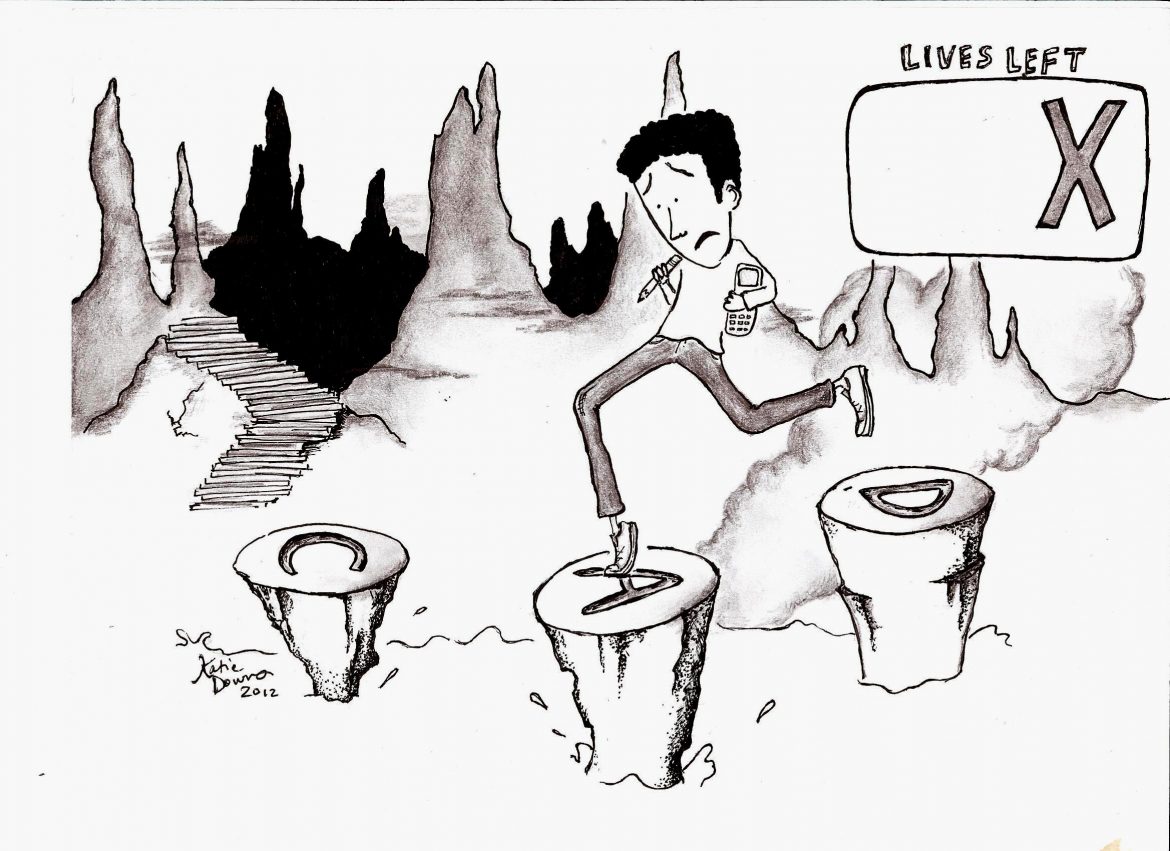By MARY WINN GRANUM – Viewpoints Writer
The new grading policy for final exams and End-of-Course Tests may leave students at a disadvantage.
“…And on the second page of the syllabus, you need to make a change. Final exams are now worth 20 percent.”

Cartoon by Katie Downs
When teachers made this announcement on Jan. 3, the first day of the second semester, Clarke Central High School students responded with groans, cries of shock and eye-rolling.
During the winter break, the Clarke County School District made a decision to implement a new policy increasing the weight of final exams to 20 percent of students’ final class grades from 15 percent, following a similar change in Georgia state policy concerning End-of-Course Tests.
This decision, though not purposefully malicious, is detrimental to the education of CCSD students. It is unreasonable for one test administered on one day to determine one-fifth of a student’s final class grade. This new policy offsets four and a half months’ worth of work in a subject.
“Now, (students’) comprehensive final exam is worth more, which could affect your average in the class,” CCHS Associate Principal Reginald Thomas said. “I think that the body of work that you show throughout the semester should be worth something, and now that’s going to be, obviously, five percent less.”
Instead of encouraging students to improve in their studies, it only gives them more incentives to improve their test-taking skills. For instance, if a student is diligent in their work throughout the semester but performs poorly on the exam for whatever reason –he or she woke up that morning with the flu, arrived late to class and missed part of the testing period or simply got nervous and made mistakes — his or her overall grade will suffer severely because of one bad test performance.
The students are not the only ones who must acclimate to the change. The abrupt change in policy was a shock to the CCHS faculty, who were given so little notice that some teachers were unable to alter their syllabi before classes resumed.
“It was a district decision, not a Clarke Central decision, so… the administrators don’t have any control to say, “Well, we don’t want to do that, or reject that,” Thomas said. “I’ll be interested to see what kind of effect, if any, it has on the students.”
Though a sudden shift of five percent in the teachers’ grade books may not seem like much, this policy favors one day of testing over the other 89 days of work put into a class. It disregards the effort put into the semester as a whole and instead focuses on the last piece of easy-to-grade, easy-to-quantify data.
